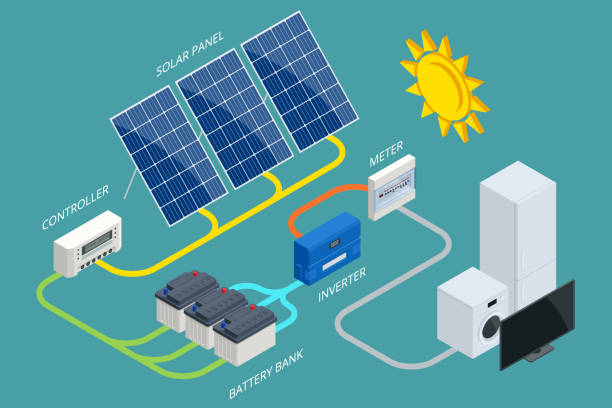How about getting an inverter for your home? One quick search, and you’ll find inverter prices all over the internet. Price is often the first thing one looks at while purchasing something. Some inverters are surprisingly affordable. Others seem far too expensive. So, have you ever wondered why there is such a wide range of inverter prices?
Well, the inverter price depends on more than just the brand or size. So, before investing, let’s check out the key elements that influence the cost.
1. Inverter Type
The first thing that makes a real difference to the inverter price is the type you choose. You’ll mainly come across three:
- Square Wave Inverters: Simple, basic models. It’s cheap and good enough for lights and fans.
- Modified Sine Wave Inverters: A bit more versatile, can run most common appliances.
- Pure Sine Wave Inverters: The top-tier ones. Perfect for sensitive electronics like TVs, computers, refrigerators, etc.
Naturally, pure sine wave inverters come at a higher price but they offer better performance and safer operation.
2. Power Capacity (VA Rating)
Every inverter is rated based on the power it can deliver. They are measured in Volt-Amperes (VA). The higher your appliances require during power cuts, the more power your inverter needs to supply.
Here’s a rough idea:
- 700–900 VA: Great for 1BHK flats or basic needs
- 1000–1500 VA: Ideal for medium-sized homes
- 2000 VA and above: Suitable for larger homes or home offices
Try not to overestimate your requirements. More power means a bigger price tag and a bigger battery.
2. Battery Compatibility and Size
The inverter price is closely linked to the battery it supports. There are a few types:
- Flat Plate Batteries: They are cheaper. Require regular maintenance.
- Tubular Batteries: A bit costly. Reliable and long-lasting
- Sealed Maintenance-Free Batteries: Super convenient. Higher price.
The battery size (Ah rating) also matters. A bigger battery gives you a longer backup, but adds to the cost.
3. Technology and Features
Inverters today are smarter than ever. Many models now come with advanced features like:
- Digital displays
- App-based monitoring
- Overload protection
- Battery health monitoring
- Solar Compatibility
- Wi-Fi connectivity
An inverter packed with more technology will cost more than a basic model. While these features improve convenience, they may not always be essential.
4. Brand and After-Sales Support
Inverter prices of certain brands are often charged a bit higher. But their after-sales service and support are always better than those of other brands. It’s that peace of mind you’re paying for.
While purchasing an inverter, it is always wise to look beyond the price. Cheaper products might save you money now. But in the future, they can cost more due to the services and repairs.
5. Build Quality and Durability
The build quality of an inverter matters more than you think. An inverter built with higher-grade components and well-ventilated lasts longer. They are built with features that can handle rough conditions like voltage spikes and humidity. Thus, the prices depend on the durability. And they also save you from frequent repairs.
6. Energy Efficiency
Energy-efficient inverters convert more electricity and reduce energy loss. This helps you to keep the monthly bills in check. These models are often found in the premium section, which means prices are high. However, when you think about long-term investments, they can help you recover extra upfront costs through lower operational expenses.
7. Installation and Extra Costs
The inverter price you see online might not include all the extra costs. It can include wiring, fuse systems, and battery trolleys. These things may seem minor, but they also add up to the total bill. So, it is always necessary to ask for a full payment breakdown before buying an inverter.
8. Market Demand and Seasonality
There are times when the inverter price depends on external factors. During the monsoon or peak summer season, the inverter demand is higher due to the frequent power cuts. And the inverter price is also high due to the demand. Planning your purchase during off-peak seasons might get you a better deal.
How to Choose the Right Inverter?
Buying an inverter isn’t just about going for the lowest price. It depends on what and why you are paying for it. It is important to understand whether you need a high-tech, heavy system or a basic one to get through a few power cuts.
Your usage, your space, and your future needs are the key here. It should be reliable, efficient, and worth your money.
Summing Up
Inverter price depends on more than just brand or size. The battery type, its capacity and the features you choose are all equally included while buying an inverter. Something that suits your needs and fits your budget. A good choice will give you a dependable backup and make the investment worth it.

